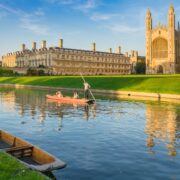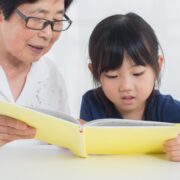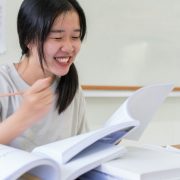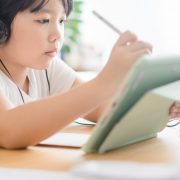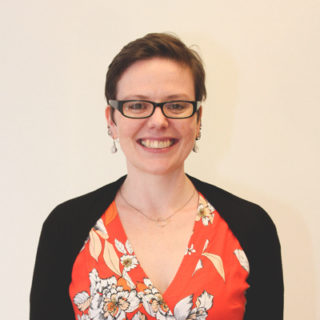
Willow Hewitt
A student can learn anything they’re passionate about. I work hard to find the best way to make my students interested in what they’re learning. No matter the topic, whether it’s grammar, poetry or letter writing, there’s always a way to make it exciting for each individual.
Willow Hewitt has degrees in both the arts and sciences, and enjoys working with young people who are keen students in both of these fields. She writes a regular column in the Education section of Playtimes, Hong Kong’s leading English medium parenting magazine. In her spare time, Willow continues to dedicate herself to writing and is currently working on a series of mystery novels set in the Peak District in the north of England.
Qualifications
- BA (Natural Sciences) University of Cambridge
- MA (Creative Writing) Manchester University
Articles
Building a Growth Mindset
Many people have something they think they’re bad at, so they might say ‘I can’t do maths’ or ‘I’m terrible at navigating.’ This is how we speak if we have a fixed mindset, i.e. we believe our abilities have a set limit, beyond which we can’t progress. The downside of this way of thinking is that it can stop us trying. … Read More
The Impact of Immersive Learning
Does it surprise you to know that only around a third of British people speak a second language? This, combined with the fact that a third of Brits actually grow up in bilingual households, should give you an idea of how good native English speakers are at learning languages. Most British students do learn a language at school, but they… Read More
Our Favourite Boarding School Books
Only a tiny number of children actually attend boarding schools, but we all love to read about them. It’s fun to imagine life away from our families, and stories about these experiences are always exciting. For those considering boarding school, or perhaps transitioning to university accommodation, these books also prepare us for what to expect. There are books set at… Read More
My Cambridge Experience
Get a real-life taste of UK student life on i-Learner’s Oxford study tour. Take a look at the brochure and video for more details of the 2024 tour. I studied Natural Sciences at Selwyn College, Cambridge, having previously considered taking medicine. A short summer camp for students contemplating medicine before I applied convinced me I wasn’t sure enough about the subject. Choosing Natural… Read More
Get Started with Story Arcs
In my previous article on writing, I gave an overview of the novel-writing process. Hopefully, that inspired you to start your own work, and you’re creating longer stories than you could before. One area that enthusiastic young writers often struggle with is the story arc, so let’s dive into that topic today and learn to keep our work… Read More
Mistakes Overlooked in Reading
At its most basic, reading is something we first learn to do, then next, we use the skill to learn other things. There’s always a pressure to be reading more complex texts in order to keep up with exam requirements, but this race to trickier vocabulary and longer books can mean we miss important skills. Sometimes, it can be helpful for a student to read… Read More
Mastering IELTS Writing Requirements
Writing is one of two surprisingly tricky papers on the Academic IELTS test. For an overview of the test and its harder elements, read our article on succeeding on IELTS. You can also get some top tips on the essay task in the writing paper here. Today, let’s take a look at task 1 on the writing paper, the shortest element, but by… Read More
New Hobbies, New Habits
As a teenager, I had a busy schedule of extracurricular activities, from fencing and choir to Girl Guides and Venture Scouts. It was fun and easy to pack my calendar with these things, especially since my parents paid for and drove me to the after-school sessions and weekends away. As an adult myself, though, it can feel like I’m busy enough simply going… Read More
Succeeding at IELTS for Overseas Studies
People wanting to study overseas commonly take a test called IELTS (pronounced ‘eye-elts’, and short for International English Language Testing System) to prove their English competence. There are many similar tests, which range in popularity around the world, with IELTS being the gold standard in the UK, where the test originates. There are actually two types of IELTS test: General Training and Academic. Those applying… Read More
How I Write: Structuring a Book
I’ve loved writing for as long as I can remember, but it took years before I was able to complete anything that I was happy with. As a child and teenager, I started new projects regularly but didn’t know how to shape them into a novel. I stuck with fragments and short stories for a while, always wanting to create something longer. Undertaking a Creative… Read More
Free BBC Listening Resources to Boost English Skills
BBC Sounds is available for free worldwide and has excellent content that can boost the skills of all English learners. The app is a great addition to the learning tools on your device (you can also listen through your browser here), and I’d recommend starting with the following programmes: BBC Learning English Drama Great adaptations in clear English and engaging language. It’s particularly… Read More
Effective Short Story Plotting for Students
Many students come to me with excellent vocabulary, an imagination packed with fantastic ideas, and an ability to organise their writing into paragraphs. However, they still score poorly on creative writing assignments. The problem isn’t that they’re weak writers; it’s often the exact opposite. These students can develop whole worlds in their minds and give characters a fascinating flaw to overcome in a way that… Read More




